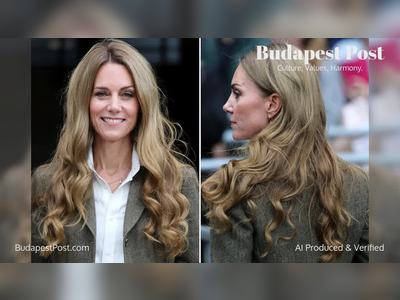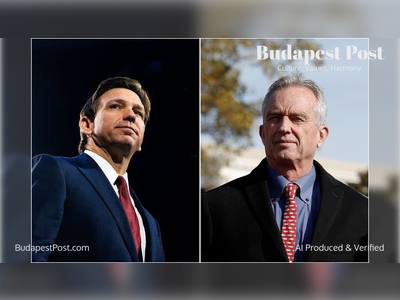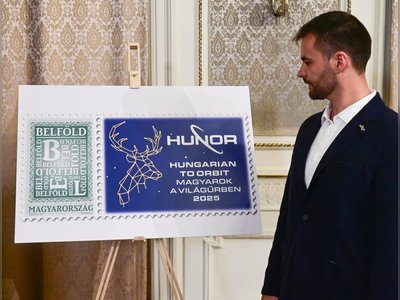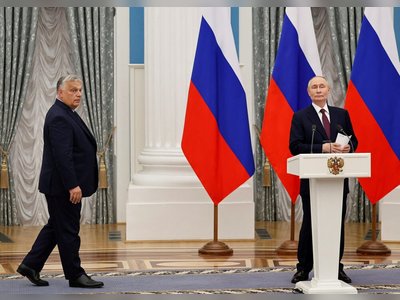"The Situation Has Never Been This Bad": The Fall of PepsiCo
PepsiCo faces one of the worst crises in its history as U.S. sales plunge, Pepsi drops to fourth place in the cola market, and activist hedge fund Elliott acquires a $4 billion stake demanding sweeping reforms.
"The situation has never been this bad": The fall of PepsiCo.
PepsiCo, the maker of Pepsi, is experiencing a dramatic crisis with a sharp decline in sales due to changing consumer habits among the American public.
Elliott, one of the world’s largest hedge funds, has purchased $4 billion worth of its shares and is calling for a revolution within the company.
PepsiCo, the world’s second-largest producer of beverages and snacks, is facing one of the most severe crises in its history.
Its flagship product, Pepsi-Cola—once considered Coca-Cola’s direct rival—has fallen to fourth place in U.S. sales volume, behind Coca-Cola, Dr Pepper, and Sprite, which is also owned by Coca-Cola.
For the first time in more than forty years, the company has lost its spot in the top three, a blow that reflects not only business damage but also a severe reputational setback.
The famous "Pepsi Challenge," a classic moment in the brand’s glory days when blind taste testers often chose Pepsi over Coca-Cola, now feels like a distant memory.
Pepsi was first created in 1893 by a North Carolina pharmacist under the name Brad’s Drink, a few years after Coca-Cola launched in Atlanta.
Five years later, it was renamed Pepsi-Cola and quickly became the “young challenger” in the soda market.
In 1965, it merged with snack-maker Frito-Lay to form PepsiCo, creating one of the world’s largest food and beverage empires.
The company strengthened its position with acquisitions such as Tropicana in 1998 and Quaker in 2001, which also added Gatorade to its portfolio.
For decades, PepsiCo was seen as a symbol of innovation and aggressive business expansion, with brands found in nearly every Western household.
Since 2023, PepsiCo’s market value has dropped by about $70 billion, falling from roughly $270 billion to $200 billion today.
Even its food division—long the company’s growth engine through brands like Doritos and Lay’s—has slowed sharply.
North American sales have contracted quarter after quarter since late 2022, prompting analysts to argue that a fundamental reset is needed, with cost savings of at least $800 million a year.
American consumers are shifting en masse to new products: energy drinks, probiotic sodas, and low-sugar alternatives.
PepsiCo, once the symbol of American soda culture, is struggling to convince Generation Z to return to its iconic blue can.
Independent distributors, some of whom have worked with PepsiCo for generations, describe a sense of abandonment.
They claim that most resources have been directed to the food division, while beverages like Pepsi and Mountain Dew have been sidelined.
“The brand has never been in such poor condition,” said one distributor.
This crisis has attracted the activist investment fund Elliott.
One of the largest and most influential hedge funds in the world, Elliott actively intervenes in the management of companies in which it invests.
It has acquired roughly $4 billion of PepsiCo shares, amounting to a 2% stake—enough to make it one of the company’s largest shareholders and to secure significant influence over its direction.
Elliott is demanding dramatic measures: foremost among them, “refranchising” the bottling operations, transferring control of distribution and bottling back to independent franchisees instead of company-owned plants.
This is the same model Coca-Cola adopted in 2017, a move widely seen as successful, leading to major efficiencies and boosting Coca-Cola’s value to nearly $300 billion.
Elliott is also calling for a review of the product portfolio and divestment of underperforming brands, such as Mirinda—still niche in the U.S. compared to Coca-Cola’s Fanta—or Sierra Mist, a failed attempt to compete with Sprite that was recently replaced by the Starry brand.
Even Sabra, the hummus maker once jointly owned with Strauss, has become a liability.
Quality and sanitation problems at U.S. plants led to repeated product recalls, damaging the brand that PepsiCo had hoped would anchor its “healthy food” strategy but instead turned into a reputational drag.
Meanwhile, PepsiCo is trying to strengthen its core brands—Lay’s, Doritos, Gatorade, Mountain Dew, and Quaker—while chasing new trends with acquisitions in fast-growing categories.
In late 2024, it purchased Siete Foods, a Latin American-inspired grain-free snack brand, and in March 2025 it acquired prebiotic soda maker Poppi for more than $1.6 billion.
Elliott is also demanding broad cost cuts and a detailed recovery plan for investors, arguing that if its proposals are implemented, the stock could rise by more than 50%.
The fund has a proven track record of similar actions: it invested over $5 billion in Honeywell, ultimately leading to a corporate breakup, and pressured Starbucks into a leadership change during a sales slump.
In the short term, the market responded positively: PepsiCo shares jumped 2.6% on the day Elliott’s letter was published.
PepsiCo responded that it would “review the proposal” and remains “confident in its strategy of focused investments, portfolio adjustments, and efficiency improvements.”
PepsiCo has a long history of clashes with activist investors.
A decade ago, Nelson Peltz of Trian Fund led a campaign to split the company into separate beverage and snack divisions and even proposed merging the snack unit with Mondelez, owner of Oreo, Cadbury, and Toblerone.
The proposal was rejected at the time, but today it is resurfacing, with renewed pressure to separate the divisions as snacks slow and beverages lose market share.
Since 2018, PepsiCo has been led by Spanish CEO Ramon Laguarta, known as a cautious strategist.
He has emphasized stability, invested in legacy brands, and upgraded operations.
Under his direction, the company began integrating food and beverage distribution to cut costs, and popular snack brands like Lay’s and Tostitos were relaunched in “clean” versions without artificial ingredients.
In beverages, the focus shifted to sugar-free alternatives.
In the U.S., Pepsi Zero Sugar has gained some share, though many industry experts argue it is less successful than Pepsi Max, the version sold in Europe.
The formulas differ: in the U.S. with more caffeine and aspartame, and in Europe with sucralose for a sweeter taste.
Both are aimed at competing with Coca-Cola Zero, but the differences illustrate how PepsiCo must adapt to consumer preferences and regulations in each market.
On Wall Street, many view these as cosmetic steps, arguing that PepsiCo faces a deeper structural crisis, not just a temporary slump.
The problem is not merely declining sales but a profound shift in consumer habits: younger generations seek innovative, low-calorie drinks and feel less attached to legacy brands.
Adding to this are Trump’s trade wars, rising production costs, and competition from smaller, trendier brands, leaving a grim picture: a corporation that until recently symbolized innovation and expansion now fighting for its relevance.
“The brand is weakening before our eyes,” say independent distributors—a sentiment that captures the crisis more powerfully than any chart or forecast.
PepsiCo, the maker of Pepsi, is experiencing a dramatic crisis with a sharp decline in sales due to changing consumer habits among the American public.
Elliott, one of the world’s largest hedge funds, has purchased $4 billion worth of its shares and is calling for a revolution within the company.
PepsiCo, the world’s second-largest producer of beverages and snacks, is facing one of the most severe crises in its history.
Its flagship product, Pepsi-Cola—once considered Coca-Cola’s direct rival—has fallen to fourth place in U.S. sales volume, behind Coca-Cola, Dr Pepper, and Sprite, which is also owned by Coca-Cola.
For the first time in more than forty years, the company has lost its spot in the top three, a blow that reflects not only business damage but also a severe reputational setback.
The famous "Pepsi Challenge," a classic moment in the brand’s glory days when blind taste testers often chose Pepsi over Coca-Cola, now feels like a distant memory.
Pepsi was first created in 1893 by a North Carolina pharmacist under the name Brad’s Drink, a few years after Coca-Cola launched in Atlanta.
Five years later, it was renamed Pepsi-Cola and quickly became the “young challenger” in the soda market.
In 1965, it merged with snack-maker Frito-Lay to form PepsiCo, creating one of the world’s largest food and beverage empires.
The company strengthened its position with acquisitions such as Tropicana in 1998 and Quaker in 2001, which also added Gatorade to its portfolio.
For decades, PepsiCo was seen as a symbol of innovation and aggressive business expansion, with brands found in nearly every Western household.
Since 2023, PepsiCo’s market value has dropped by about $70 billion, falling from roughly $270 billion to $200 billion today.
Even its food division—long the company’s growth engine through brands like Doritos and Lay’s—has slowed sharply.
North American sales have contracted quarter after quarter since late 2022, prompting analysts to argue that a fundamental reset is needed, with cost savings of at least $800 million a year.
American consumers are shifting en masse to new products: energy drinks, probiotic sodas, and low-sugar alternatives.
PepsiCo, once the symbol of American soda culture, is struggling to convince Generation Z to return to its iconic blue can.
Independent distributors, some of whom have worked with PepsiCo for generations, describe a sense of abandonment.
They claim that most resources have been directed to the food division, while beverages like Pepsi and Mountain Dew have been sidelined.
“The brand has never been in such poor condition,” said one distributor.
This crisis has attracted the activist investment fund Elliott.
One of the largest and most influential hedge funds in the world, Elliott actively intervenes in the management of companies in which it invests.
It has acquired roughly $4 billion of PepsiCo shares, amounting to a 2% stake—enough to make it one of the company’s largest shareholders and to secure significant influence over its direction.
Elliott is demanding dramatic measures: foremost among them, “refranchising” the bottling operations, transferring control of distribution and bottling back to independent franchisees instead of company-owned plants.
This is the same model Coca-Cola adopted in 2017, a move widely seen as successful, leading to major efficiencies and boosting Coca-Cola’s value to nearly $300 billion.
Elliott is also calling for a review of the product portfolio and divestment of underperforming brands, such as Mirinda—still niche in the U.S. compared to Coca-Cola’s Fanta—or Sierra Mist, a failed attempt to compete with Sprite that was recently replaced by the Starry brand.
Even Sabra, the hummus maker once jointly owned with Strauss, has become a liability.
Quality and sanitation problems at U.S. plants led to repeated product recalls, damaging the brand that PepsiCo had hoped would anchor its “healthy food” strategy but instead turned into a reputational drag.
Meanwhile, PepsiCo is trying to strengthen its core brands—Lay’s, Doritos, Gatorade, Mountain Dew, and Quaker—while chasing new trends with acquisitions in fast-growing categories.
In late 2024, it purchased Siete Foods, a Latin American-inspired grain-free snack brand, and in March 2025 it acquired prebiotic soda maker Poppi for more than $1.6 billion.
Elliott is also demanding broad cost cuts and a detailed recovery plan for investors, arguing that if its proposals are implemented, the stock could rise by more than 50%.
The fund has a proven track record of similar actions: it invested over $5 billion in Honeywell, ultimately leading to a corporate breakup, and pressured Starbucks into a leadership change during a sales slump.
In the short term, the market responded positively: PepsiCo shares jumped 2.6% on the day Elliott’s letter was published.
PepsiCo responded that it would “review the proposal” and remains “confident in its strategy of focused investments, portfolio adjustments, and efficiency improvements.”
PepsiCo has a long history of clashes with activist investors.
A decade ago, Nelson Peltz of Trian Fund led a campaign to split the company into separate beverage and snack divisions and even proposed merging the snack unit with Mondelez, owner of Oreo, Cadbury, and Toblerone.
The proposal was rejected at the time, but today it is resurfacing, with renewed pressure to separate the divisions as snacks slow and beverages lose market share.
Since 2018, PepsiCo has been led by Spanish CEO Ramon Laguarta, known as a cautious strategist.
He has emphasized stability, invested in legacy brands, and upgraded operations.
Under his direction, the company began integrating food and beverage distribution to cut costs, and popular snack brands like Lay’s and Tostitos were relaunched in “clean” versions without artificial ingredients.
In beverages, the focus shifted to sugar-free alternatives.
In the U.S., Pepsi Zero Sugar has gained some share, though many industry experts argue it is less successful than Pepsi Max, the version sold in Europe.
The formulas differ: in the U.S. with more caffeine and aspartame, and in Europe with sucralose for a sweeter taste.
Both are aimed at competing with Coca-Cola Zero, but the differences illustrate how PepsiCo must adapt to consumer preferences and regulations in each market.
On Wall Street, many view these as cosmetic steps, arguing that PepsiCo faces a deeper structural crisis, not just a temporary slump.
The problem is not merely declining sales but a profound shift in consumer habits: younger generations seek innovative, low-calorie drinks and feel less attached to legacy brands.
Adding to this are Trump’s trade wars, rising production costs, and competition from smaller, trendier brands, leaving a grim picture: a corporation that until recently symbolized innovation and expansion now fighting for its relevance.
“The brand is weakening before our eyes,” say independent distributors—a sentiment that captures the crisis more powerfully than any chart or forecast.
AI Disclaimer: An advanced artificial intelligence (AI) system generated the content of this page on its own. This innovative technology conducts extensive research from a variety of reliable sources, performs rigorous fact-checking and verification, cleans up and balances biased or manipulated content, and presents a minimal factual summary that is just enough yet essential for you to function as an informed and educated citizen. Please keep in mind, however, that this system is an evolving technology, and as a result, the article may contain accidental inaccuracies or errors. We urge you to help us improve our site by reporting any inaccuracies you find using the "Contact Us" link at the bottom of this page. Your helpful feedback helps us improve our system and deliver more precise content. When you find an article of interest here, please look for the full and extensive coverage of this topic in traditional news sources, as they are written by professional journalists that we try to support, not replace. We appreciate your understanding and assistance.









